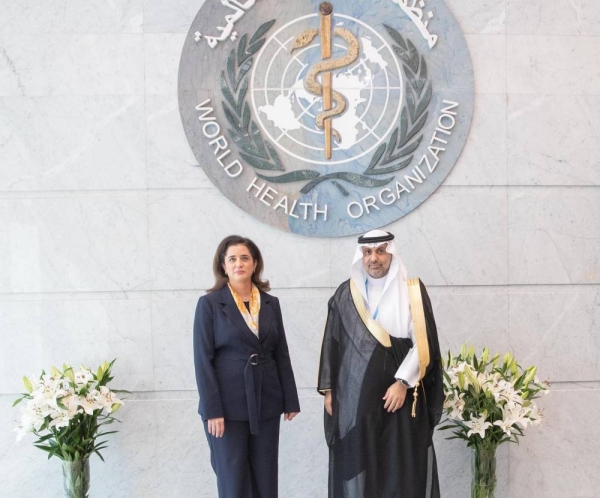
The Eastern Mediterranean, for years a zone of competition and conflict, is witnessing the first signs of bonhomie among the principal regional states.
In August last year, Turkiye and Israel announced they would exchange ambassadors after a gap of four years. In February, Israel was a high-profile presence in relief efforts in Turkiye following the earthquake there. And Prime Minister Benjamin Netanyahu is expected to visit Ankara shortly.
Turkiye and Egypt, estranged since 2013, reestablished diplomatic ties in July this year. Engagements had commenced in 2021 and the positive trend was cemented in late 2022, when Turkish President Recep Tayyip Erdogan shook hands with President Abdel Fattah El-Sisi during the FIFA World Cup in Qatar. In August, Egyptian Trade Minister Ahmed Samir Saleh visited Ankara and agreed with his Turkish counterpart to target an increase in bilateral trade from $10 billion to $15 billion over the next five years.
Again, in July this year, the presidents of Turkiye and Greece met each other on the sidelines of the NATO Summit in Vilnius, Lithuania, shortly after their respective electoral victories. Following naval confrontations in the Eastern Mediterranean from 2020 and even threats of war, ties plummeted in May last year, when Greece lobbied the US Congress to block arms supplies to Turkiye. In Vilnius, however, the two leaders welcomed the “positive climate” in their relations, with much goodwill having been generated by Greece’s immediate response to the earthquake in Turkiye.
To complete the positive scenario, Cyprus has indicated an interest in reopening dialogue with Ankara, through the UN and the EU, on the long-standing issue of the division of the Eastern Mediterranean island state. In 1974, Cyprus was split into the internationally recognized Republic of Cyprus and the so-called Turkish Republic of Northern Cyprus, which is recognized only by Turkiye and where 30,000 Turkish troops are based.
These developments could herald good news regarding the development of the Eastern Mediterranean’s gas potential.
Gas was first discovered in Israel’s Tamar and Leviathan offshore fields in 2009 and 2010, respectively, transforming an energy-poor country into a possible exporter. Cyprus’ Aphrodite field was the next to be discovered in 2011, followed by Egypt’s Zohr field in 2015. The combined proven reserves of recoverable gas in the Levant basin, including Israel, Cyprus, Egypt, Lebanon and Syria, is 3.5 trillion cubic meters, with Egypt having an additional 6.2 trillion cubic meters of gas potential.
The only panacea for the Eastern Mediterranean is inclusive regional cooperation. Some signs of this have emerged recently.
Talmiz Ahmad
In May 2012, Greece and Cyprus proposed the EastMed gas pipeline that would transport their gas to Europe. Though initially welcomed by the EU as a way of reducing European dependence on Russian gas, the project floundered due to high costs and the limited quantity of gas available.
However, besides the problems relating to gas economics, the full development and marketing of the region’s substantial gas reserves have been stymied by political disputes over the last decade. After a long rift in its bilateral ties with Israel, Turkiye also fell out with Egypt in 2013 following the fall of the Morsi government.
Ankara then reached out to Libya’s Tripoli-based administration and, in 2019, concluded a security agreement that led to the deployment of Turkish officers and mercenaries from Syria to protect the government. In return, the Tripoli government agreed to demarcate the waters of the Eastern Mediterranean to Turkiye’s advantage by encroaching on the claims of Greece and Cyprus to the natural gas in their exclusive economic zones.
Following this encroachment on Greek and Cypriot claims, these two countries joined Egypt, Israel, Jordan, the Palestinian Authority, Italy and France in setting up the East Mediterranean Gas Forum in 2020, pointedly excluding Turkiye. This set the stage for naval confrontations in the Eastern Mediterranean, in which France also joined in on the Greek side. However, due to internal rivalries among the principal partners, the forum has not delivered anything tangible to the member states.
Clearly, the only panacea for the Eastern Mediterranean is inclusive regional cooperation. Some signs of this have emerged recently. In October 2022, Israel and Lebanon signed a final demarcation agreement for their shared maritime border, ending a decade-long dispute that had prevented the exploitation of Lebanon’s gas potential. In January, it was reported that QatarEnergy would join France’s TotalEnergies and Italy’s ENI in developing Lebanon’s offshore blocks.
Another development took place last month, when Israel announced it would export an additional 38.7 billion cubic meters of gas to Egypt over the next 11 years. As production from the Zohr field has fallen, Egypt last year imported a record 6.27 billion cubic meters of gas from Israel, almost 50 percent more than in the previous year. Egypt plans to utilize its domestic production and imports to provide a surplus for export (its gas exports last year were valued at $8.4 billion). Israel is also said to be working with Egypt and the PA to develop a gas field off the Gaza coast, but this is obviously a long-term project.
Thanks to Turkiye’s positive engagements with its neighbors in recent times, the stage is set for its integration into the Eastern Mediterranean gas scenario, meaning that the rich resources in the seabed can be used cooperatively for the benefit of the entire region.
• Talmiz Ahmad is a former Indian diplomat.
Disclaimer: Views expressed by writers in this section are their own and do not necessarily reflect Arab News" point of view












